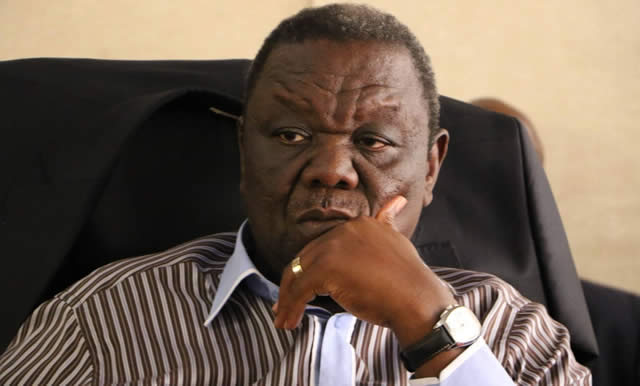Editorial Comment: Sadc has no time for non-issues

Opposition parties in our country and their civil society runners clearly overestimate themselves and their agenda.
They view themselves as fighting for the second independence of this country, for universal values that Zimbabweans have never enjoyed over the past 16 years or so. Therefore, the opposition leaders reckon in their shallow minds, everyone must have time to listen to them and agree with them, from the grassroots right up to the more dignified Sadc and African Union summits.
In late July, a few unelected people made noises about something they named a “national transition authority,” which they said must take over the running of the country from a Zanu-PF administration that was elected on a roaring landslide in July 2013.
Well known opposition activists, among them Dr Ibbo Mandaza and Mr Tony Reeler, are at the forefront of calling for the “national transition authority”. They made the announcement as another shamelessly pro-opposition outfit, the so-called “Elders” comprising Mr Kofi Annan, Bishop Desmond Tutu and Mrs Graca Machel demanded the same. All this comes in the broader context of demonstrations being called and staged by the opposition to force illegal regime change in the country.
This week, the opposition political parties tried to pull off what every sensible person knew was an impossibility — to have Zimbabwe on the agenda of the 36th Sadc Summit that was held in Swaziland this week.
Mr Morgan Tsvangirai’s MDC-T, Dr Joice Mujuru’s Zimbabwe People First and other political parties under the banner National Electoral Reforms Agenda wanted regional leaders to discuss cases of violence that the opposition leaders themselves are actually provoking and perpetrating, particularly in Harare in recent weeks.
They were ignored as Sadc leaders concentrated on more substantive issues affecting the region, not non-issues raised by people seeking relevance.
“The agenda of Sadc is formulated by the (Sadc) chair in consultation with the secretariat,” said Ambassador Joey Bimba, the Permanent Secretary in the Ministry of Foreign Affairs.
“It is decided well before the summit. Items do not just find themselves on the agenda. It’s impossible. The agenda will consist mostly of the implementation of decisions that were made by summit. Like in this (Swaziland) case, the summit met and made decisions and the duty of the executive secretary between now and the next summit is to see the implementation of those decisions. A good part of the next summit will be devoted to seeing whether those decisions were implemented. If there are any new issues they are also down and brought by the chair in consultation with the executive secretary, that is the procedure.”
A Sadc Summit that had no time to officially discuss the unfolding armed conflict in Mozambique that had killed 307 people by May since hostilities flared up in 2013, and has resulted in the displacement of up to 15 000 refugees, most of whom have fled to Malawi and a few hundreds to Manicaland, was expected to have an agenda item on the prevailing situation in Zimbabwe.
A Sadc Summit that only called for peace in post-election Zambia was, somehow, expected to have time to discuss issues raised by a band of spent forces seeking to reclaim their relevance of old and opposition upstarts that didn’t learn anything from their long service in Zanu-PF and the Government.
Far from the noises made by Mr Tsvangirai and Dr Mujuru, the leaders tackled really pressing matters for their region — HIV and Aids, the regional drought that has affected 40 million Sadc citizens, women empowerment and the instability in Lesotho.
There is absolutely no basis for us to even commend Sadc for ignoring the cheap attention seekers from Harare because there was no chance in the first place that their overtures were going to be officially discussed at the summit.
Having said this, we are unhappy with the opposition activities that seek to put the name of the country and its people into disrepute.
The disruptive behaviour that they want to promote in the country does not solve the economic challenges we are facing. It certainly cannot unseat a government that has a resounding mandate that Zanu-PF has. The Government cannot sit back and watch as the opposition attempts to use unconstitutional means to unseat it. It will obviously defend the constitution.
What the opposition needs to do, if they are serious, is to sell their ideas in an orderly fashion to the electorate, pitting them against those of the ruling party. The people always notice those that have a compelling message and they vote for such people. Not those causing mayhem on streets or churning inconsequential social media diatribe. Not those approaching august gatherings like Sadc summits with matters of nuisance value.










Comments